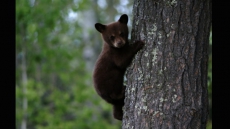With cutbacks in research dollars around the world, a group of international biologists believes it's time for some DIY science.
The team is developing simple observations and tests that recreational sailors and boaters can undertake on the high seas in the name of knowledge.
"The amount of funding that is allocated by various international governments is always somewhat inadequate, given what oceanographers would like to do," said Jay Cullen, of the School of Earth and Ocean Sciences at the University of Victoria.
"So when we look at the number of private vessels ... that do transverse some of these less accessible and less sampled areas of the ocean, we see an opportunity," he said Tuesday.
The ocean covers 70 per cent of the planet, and many scientists believe only a fraction of the marine life forms that call it home have been discovered.
Research expeditions are prohibitively expensive, Cullen said, and the ocean far too vast for scientists to cover. But there are recreational sailors in "ships of opportunity" all over the world.
"I think that sailors in particular have knowledge and experience and a vested interest in the health of the ocean," Cullen said.
"My previous experiences with citizen science is that people are very happy and enthusiastic to volunteer."
Cullen was one of a group of scientists involved in a pilot study last year that gathered simple data during a sailboat voyage from Cape Town, South Africa, to Phuket, Thailand.
He developed a simple test for trace metals in the sea water along the route.
"It involved taking samples off the moving ship with a pole with a bottle on the end and then processing the samples cleanly in a clean-air enclosure in, well, in the galley," he said with a chuckle.
A trial expedition last year looked at the impact of shipping traffic on ocean biology and chemistry.
Specifically, the Indigo V voyage gathered information on the microbes, viruses, bacteria and algae that form the base of the oceanic food chain, those responsible for key ocean processes such as carbon fixation and photosynthesis.
Cullen's experiment looked at the types of algae and bacteria are present on the surface of the ocean and how they're affected by metals.
"Our project demonstrated that with simple instruments and basic training, sailors can sample a wide range of waters and collect meaningful data, comprising the largest global oceanographic monitoring network to date," Frederico Lauro, the expedition director and an associate professor at the University of New South Wales and Nanyang Tehnological University in Singapore, said in a statement.
In the future, they hope data gathered by "citizen scientists" will be processed by scientists, informing everything from weather forecasts to detection of changes in the ocean environment.
The information could help search and rescue teams calculate the trajectory of debris in the ocean, or provide information on emerging threats to the marine environment, such as ocean acidification.
Initial research into the project — published in the latest edition of the journal PLOS Biology — involved UVic and the Natural Sciences and Engineering Research Council of Canada, as well as institutes in Nevada, Australia, Singapore and Denmark.




